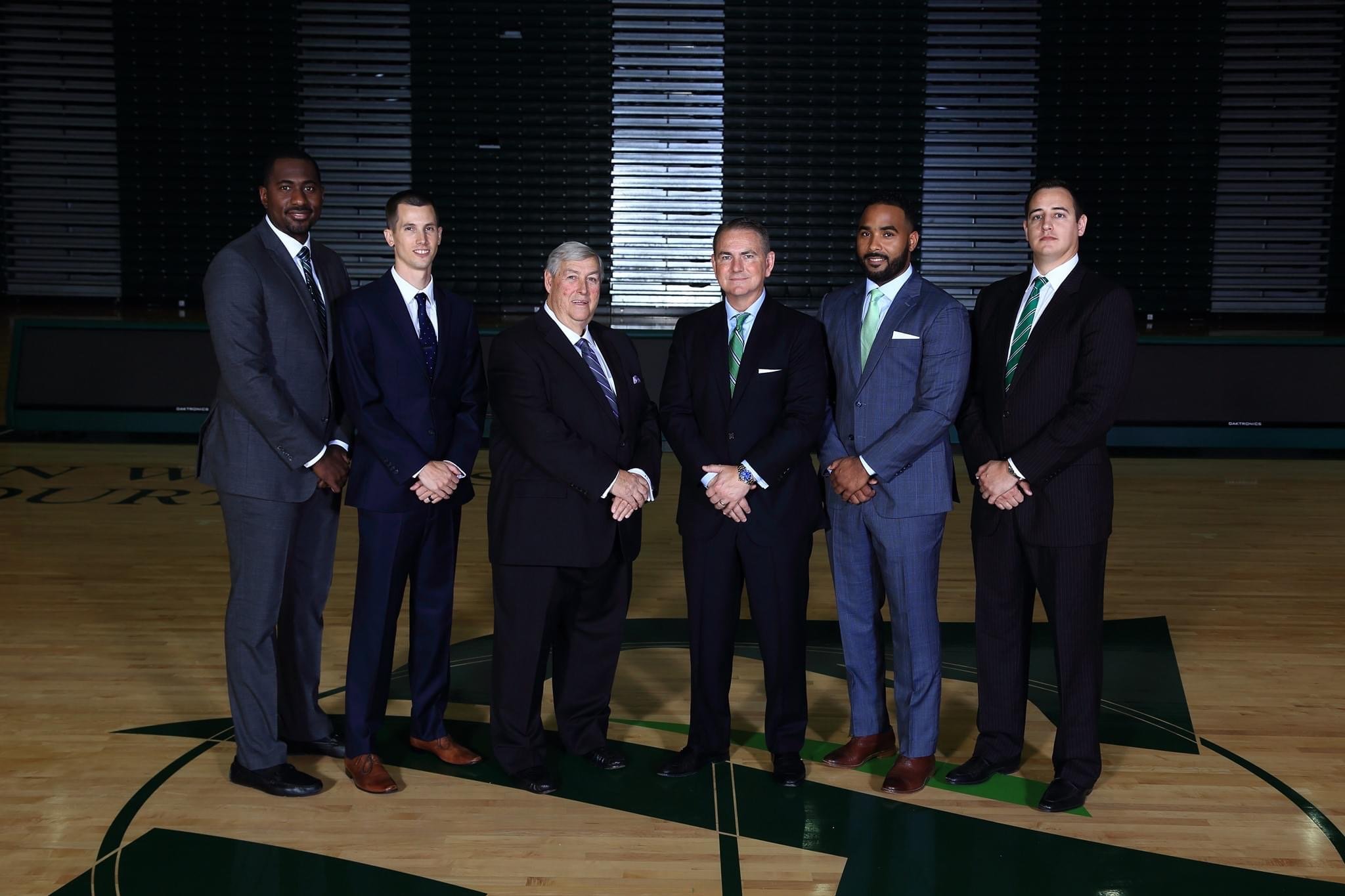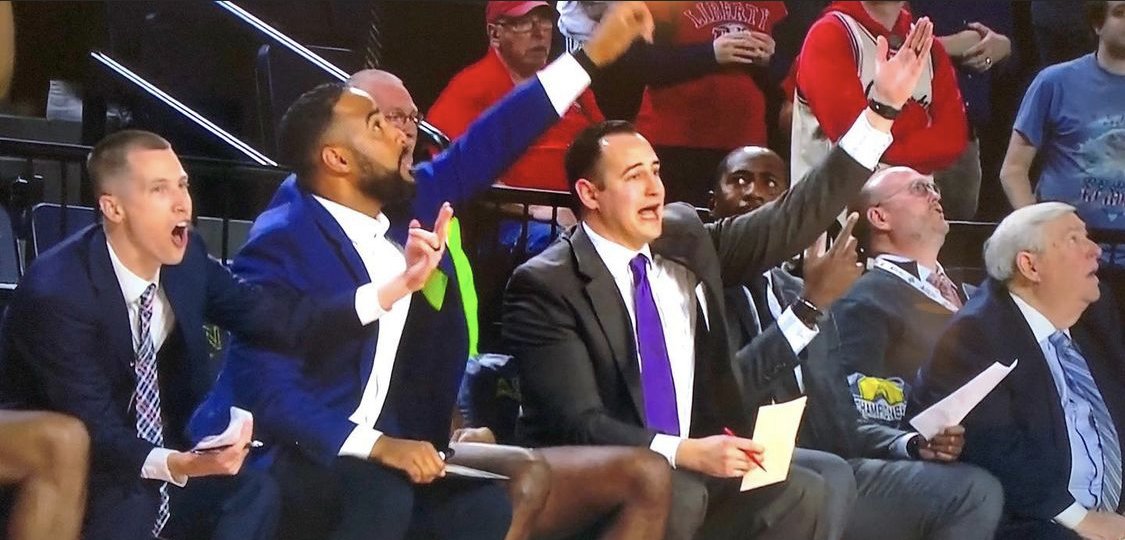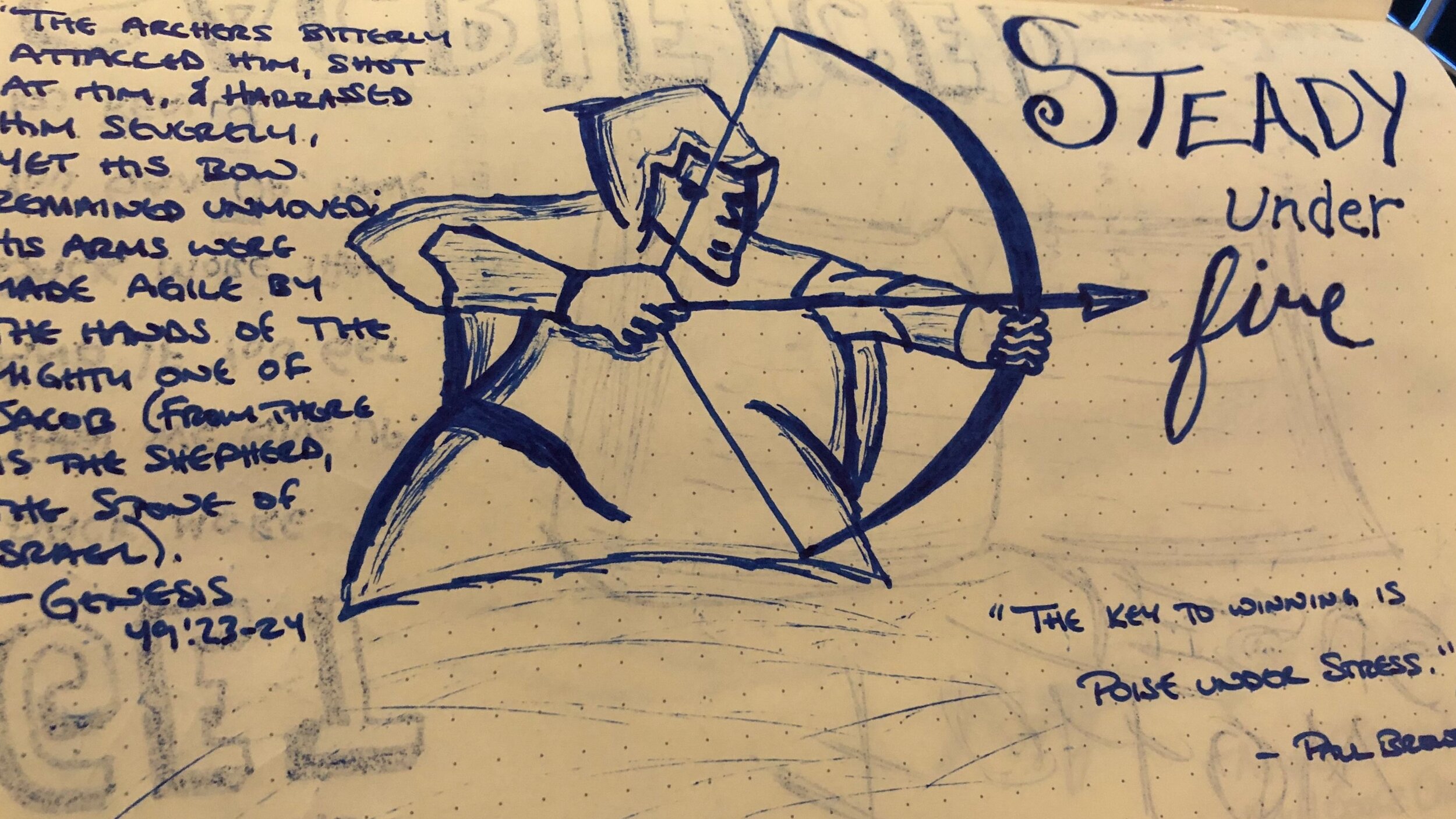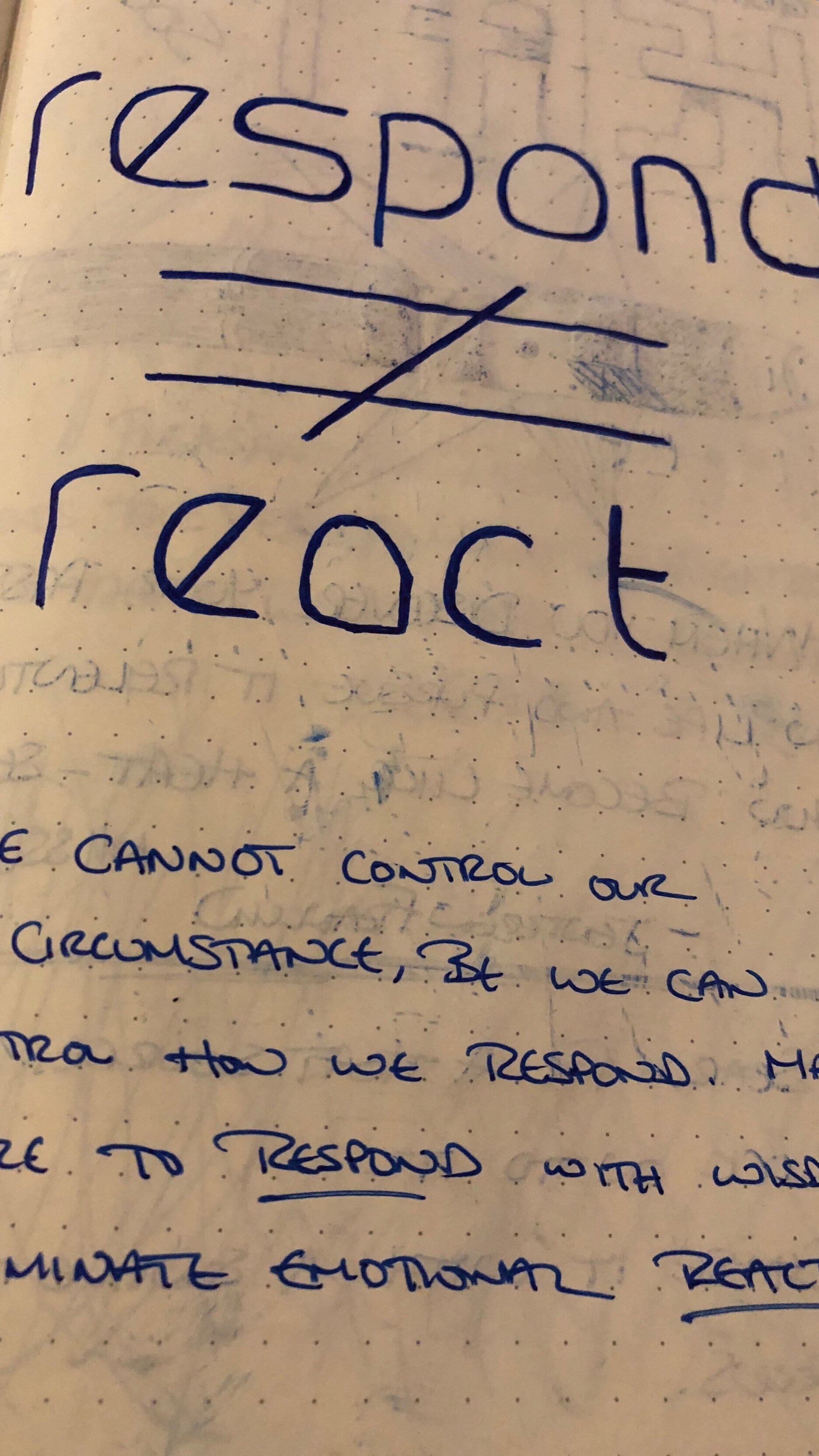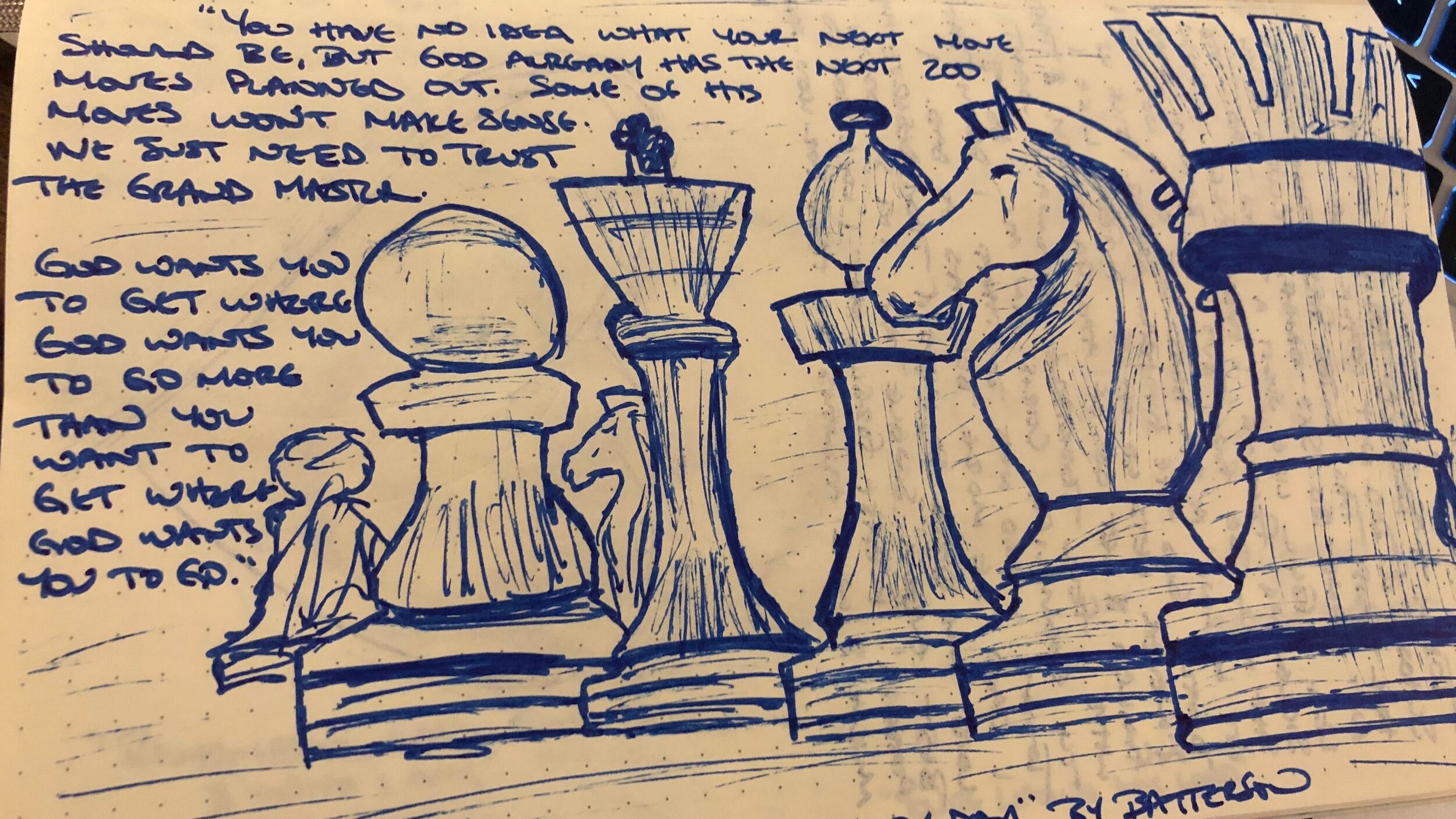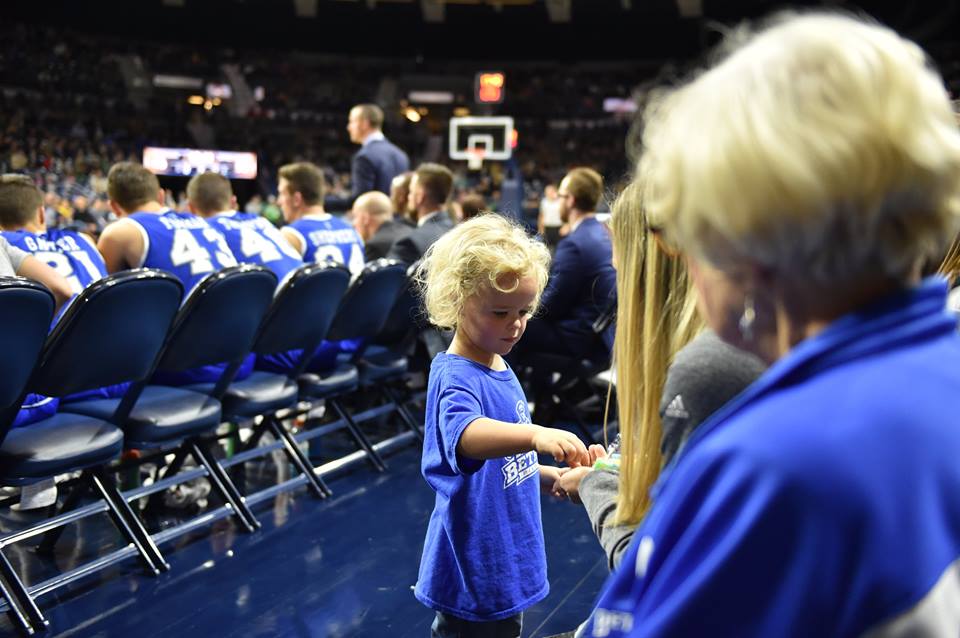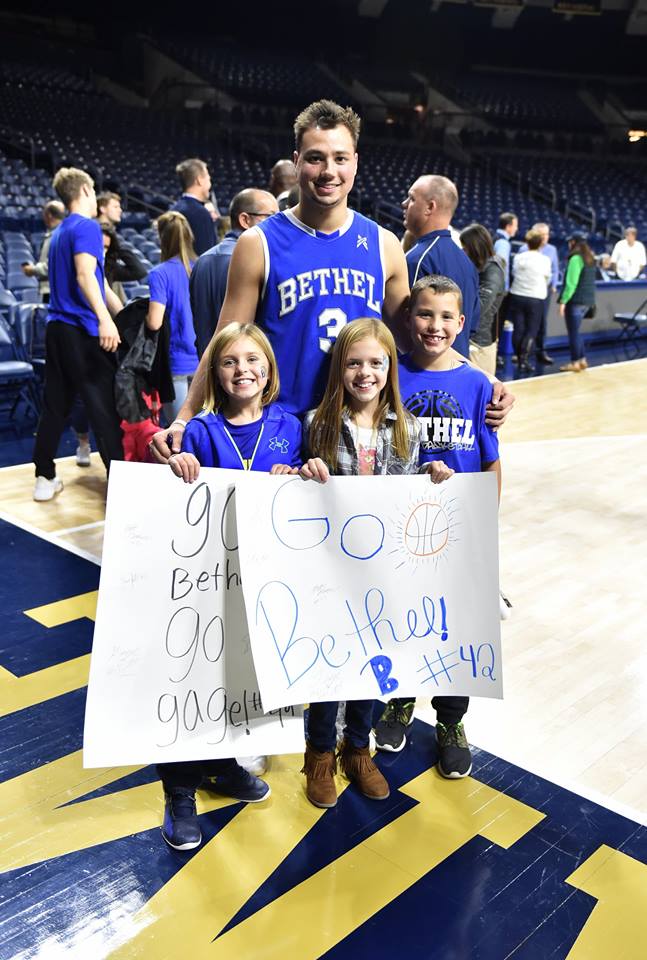DUKE BASKETBALL CAMP
I first got involved with Duke Basketball Camp as a camper about a decade ago. And I was a phenomenal camper (which I must say is a slight distinction from being a phenomenal player). I connected with many camp coaches and even impressed the camp director so much that he remembered me… nearly 10 years later.
I emailed the camp staff in late 2014 about working camp the next summer, in 2015. I got denied.
The next year I sent another email application. I was told I was being considered. Then the deal breaker game.
A friend and I went to the University of Georgia to watch the Bulldogs take on High Point in an early season contest. As my buddy and I questionably snuck our way closer to the court, I noticed a familiar ESPN announcer. It was Duke’s Camp Director who also happens to work for ESPN.
After the game, I approached the announcer’s booth to say hello, and that I had applied this summer for camp. Security was telling me and my friend to exit the building. I persisted and said, “I know the announcer, I’m just saying hello.” They let me hang around a few more seconds.
After the ESPN team wrapped up their coverage, I quickly said hello to the camp director and mentioned I had applied again to coach at camp.
“Wow! I remember you as a camper” he replied. “I’m glad you came up and said hello because now I know that you’re not just some Joe blow off the street. We’ll get you on.”
I don’t know how many people that you want to work for also commentate for ESPN, but if he does, find what game he’s calling next, go to that school, and stay after. Ok, I’m kidding about that, but this is how I got connected at Duke camp.
UCLA BASKETBALL CAMP
Now that I’m writing this out, I’m finally realizing how one door opens another, and that door opens another, and that door opens another, and on and on. UCLA was one of my most recent basketball opportunities and it makes sense to me to do this thing backwards.
I met Jim Harrick, former UCLA Head Coach, at a 2016 PGC/Glazier clinic in Dallas.
Quick side note: I’ve had people assume I come from a wealthy family and they just pay for me to travel all over the place and do these basketball things. The truth is that I do have very supportive and encouraging parents, but I am by no means rich. My mother does a phenomenal job supporting me financially but it’s not like I can do anything I want or go anywhere I want. My parents have been divorced for most of my life. My dad, unemployed since 2008, now lives in a camper in north Georgia and my mother is a school teacher. I’m a full-time college student. We’re not poor, but certainly not rich. I’ll get into some of my financial beliefs and how that’s played into these opportunities later.
So I meet Jim Harrick in Dallas at PGC/Glazier clinic in fall of 2016. A friend of mine, Faiz Ahmed, and I were talking in July 2016 about the benefits of volunteering at basketball clinics; you get in for free (save money!), and might get unique access to speakers and staff of the clinic. This rings true.
After that conversation I researched basketball clinics in Atlanta. I knew of PGC so I reached out to them about their Atlanta clinic. I’m from Atlanta, so I figured I could volunteer at the clinic, get free admission, and just take the 45-minute drive back and forth from my house each day. They exceeded my expectations: They paid for my hotel allowing me to stay in Atlanta during the entire clinic. That allowed me to begin a relationship (not like we’re best friends but we know each other) with an individual who I think is one of the best coaches in basketball period, Mike Neighbors of Washington and now Arkansas. He, myself, and some other coaches stayed at the same hotel and went out in the night and talked hoops for a few hours.
During the Atlanta clinic, I asked PGC/Glazier staff if they needed help at their Dallas, Texas clinic, which would be the next week… Like in 6 days. Fortunately they said yes., they needed help.
Just like the Atlanta clinic, PGC/Glazier covered my hotel and entry to the clinic so all I had to do was pay for the flight and find cheap food (While in Dallas I walked about two miles to a McDonalds during breaks because that was by far cheaper than the hotel food and Uber costs money, walking is free).
If you don’t know about PGC/Glazier, you need to because they are really good. Their clinics have multiple sessions Friday, Saturday, and Sunday and will have multiple speakers presenting at once (all in different rooms of course). Going into Dallas and looking over their speaker lineup, I knew had to be Jim Harrick’s room host. Not only did he win a national championship, he also coached in my home state of Georgia at the University of Georgia and I also figured he might have some influence in getting me into working UCLA’s camp, a position I applied for last summer and did not get.
Another side note: Persistence is key! The first time I applied at Duke and UCLA I was denied. And I am in no way unique here. Countless coaches have persisted when they weren’t given the jobs they wanted.
I told PGC/Glazier that my one request was to be Jim Harrick’s room host. In other words, room hosts are the speaker’s host. We get them water, papers, pens, anything they need. Being a coaches room host also allows for small talk between the sessions. Amazingly, the clinic staff allowed me to host Coach Harrick. By the way, he is a character and great clinician!
At PGC/Glazier I learned that In 1996, Jim Harrick hired the guy who is today’s UCLA camp director. That’s some leverage! Jim reached out to the camp director on my behalf and got me in!
SNOW VALLEY BASKETBALL SCHOOL
Now let’s go backwards in this story. If you noticed I mentioned a conversation I had with Faiz Ahmed, who, by the way, is going to be a phenomenal NBA coach one day. But I hope he and I are on the same college staff one day.
The conversation we had was at Snow Valley Basketball School in Iowa. How did I get that opportunity?
This story is shorter and much more simple. I went to Coaching U Live in Orlando for two summers and met Don Showalter there, the head coach for the USA junior national teams and also the camp director at Snow Valley Basketball School. I also attended PGC/Glazier Atlanta in 2015 (as a guest, not support staff) and got lunch with Coach Showalter there. By seeing me at those two clinics, I guess he noticed I was a fairly dedicated young coach and he invited me to coach at Snow Valley! And of course I said yes.
A FEW OTHER THINGS THAT HAVE HELPED ME
A BUDGET FOR SUCCESS
Kevin Eastman, one of the best givers to coaches, talked about this recently at his Elite Training Camp last week but I promise I was doing it before I also heard it from him. Beginning my first year of college, I always budget my money, and one of the budgets I have is a basketball budget: it allows me to pay for coaching DVDs, clinics, gas when I go visit a practice, etc.
Each paycheck I get (which is never that much) goes like this, and I learned this from mentors at my church: Give some, save some, live on the rest.
Give 10% to the church or some of my favorite charities. Save/invest about 60%. Live on the rest.
For me, retirement saving has not begun nor have I started saving for my future kids college. Shoot, I’m still in college! Yet, investment for me in my financial plan mostly means invest in myself, my career, and my development. That includes paying for basketball clinics, DVDs, etc.
This past summer this meant taking the money I made from a previous camp to pay for the expenses of the next. For example, I coached a showcase event early this summer. I didn’t spend that money on shoes, my car, or my girlfriend, I saved it and invested it into paying for travel expenses to the next camp.
Not only that, I also started a lawn care company (I use the word company very lightly haha) with my best friend. Almost every single dollar I’ve made from there either went straight to my savings to pay off my final year of college debt-free, or it went straight into my basketball ventures.
Financial Side Note: Older coaches reading this will know this, but some young coaches might not have thought about this. This is one of the most important lessons I’ve learned: Financial freedom allows you to do the things you want to do. Debt limits opportunities. No debt opens opportunities. One of the best decisions I’ve made was going to a very affordable in-state university. My college experience has not been the stereotypical American college experience, meaning it hasn’t been a lot of what they call “college fun”, but its been a good education and most importantly, affordable. And I’m so thankful it has been.
If you have financial excuses for why you can’t go to a clinic or a basketball event but all you do is buy ten pairs of sneakers a month or buy 4 concert tickets a month, then you are the only person holding you back. Saying “no” to luxury allows an individual to say “yes” to opportunity. And with enough opportunity, luxury just might have its way of showing up on the backside.
I haven’t seen this among many young coaches, but I have a number of friends who are complaining about not getting a certain job, or not being able to get a shot at anything when all they do is spend their money on their car or boat or girlfriend. Money is absolutely vital in professional advancement because it affords an individual to invest in themselves. Without it, people very much limit their professional opportunities because they can’t buy any products or services to develop!
EBAY
My primary financial goals throughout college have been 1) Graduate debt-free and 2) Invest in my basketball career. One huge help in that has been eBay, Amazon, and Facebook Marketplace, and flipping items from thrift stores. What I’ll do now is show you a few items that I have flipped and profited from for the purpose of investing in my basketball career. Hopefully this gets you thinking of ways to make some extra money to invest in your development.
REI Backpacks – I am as interested in camping, fishing, and outdoors activities about as much as Kim Kardashian is. Well, she at least to appears to not spend much time in the wilderness. But I have found a good item to make money off of. That is hiking packs from REI.
A friend of mine invited me to REI, an outdoor gear store, about two years ago to their scratch and dent sale; their clearance sale. I went just for fun. However, while there, I began to think that a lot of those items could definitely be flipped online. So I did my research. Long story short, I have gone to three REI Scratch and Dent sales and profited a few hundred bucks off of it.
These sales attract a large crowd, so to get a good spot in line at these sales, I typically get up at 4 something to be sure I’m the first one in the door. The packs sell really well on eBay so I go straight for them when I get in the door. I’ll grab a few of them off the rack and make sure they’re not torn up too bad. Then I’ll buy them and have them listed on eBay the same day. Some I buy for $70 and sell on eBay for $140. Sell three of those plus a few other miscellaneous items and it’s a $250+ profit in one morning. Definitely beats minimum wage!
Another popular item I’ve flipped are ab lounges. The best flip I’ve done with these was pretty awesome. I found a $3 ab lounge at a Goodwill and had it listed on Facebook yard sale sites the same day. It sold for $85. That’s $82 just by swinging by a goodwill on my way home, listing it online, and meeting the person for pickup. Once again, that surely meets minimum wage.
The last item I’ll mention was a MacBook. I’m a member of several yard sale sites on Facebook. I noticed a macbook on one of the pages going for $50 and just felt in my gut, this is a steal. Without even doing any research, I messaged the seller and bought it the next day. I listed it on eBay and a week or two later it sold for $11,550. Hahaha no I’m kidding. It sold for $150. But still, $100 profit isn’t bad.
Now why am I mentioning this? I mention these items because explaining in detail some things I’ve flipped may give coaches some better insight into how to make some side money to invest in their careers. For me, a specific description of a few different items is better that just hearing “Go flip stuff.”
THAT'S ALL FOR NOW
Sincerely, I hope this adds value to somebody. God has blessed me with these opportunities. And more importantly than these opportunities are the people I’ve met and now call friends. He has also blessed me with people in my life who have taught me the lessons mentioned above. I didn’t come up with any of this stuff or tactics, I just listened to wise people who I want to be like. Sometimes life is pretty simple, we just find a way of making it hard sometimes.
If you are a coach looking for more opportunity or have any questions about anything written here, I’d sincerely love to hear from you. I’m not a huge influencer in the basketball world, but I’d be happy to see if I could connect you with people I know. Or I’d love to talk with you about making side money because I know an extra couple hundreds of bucks could go a long way for some coaches.
Feel free to tweet me at @masonwaters_, email me at mason1waters@gmail.com or call/text at 678) 656-6957. I’d love to hear from you.
Thank you for reading!
MASON WATERS

